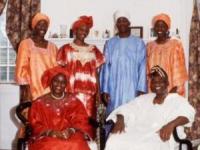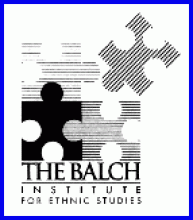In this lesson, students will learn about different African immigrant experiences.
African Immigrant Family Case Studies
African Immigrant Family Case Studies
Essential Questions
Objectives
Students will be able to:
- Understand and explore various examples of African immigrant families coming to Philadelphia by analyzing the story of a family from Coming to Philadelphia: Seven Stories.
- Connect to the experiences of African immigrants by engaging in discussion about family life in Africa and Philadelphia.
- Synthesize their knowledge of the experiences of African immigrants by composing a monologue based on the oral history of an African immigrant to Philadelphia.
Other Materials
Suggested Instructional Procedures
- Instruct students to make a list of all their extended family members, including grandparents, cousins, aunts, uncles, adopted cousins, etc. Compare the extended family and the nuclear family. Have students imagine that their extended family members live in the same house and/or neighborhood. Suddenly, their nuclear family decides to immigrate to another country. Ask students if all their extended family members can go with them? Why or why not? Who, if anyone, from their extended family might go with them? Why or why not? Most Africans have large extended family members living near them. When an African immigrant or African immigrant family moves to the United States, they may leave many of their extended family behind. Ask students how they think these African immigrants would feel? Ask students how they would feel if they immigrated to another country and had to leave their extended family members behind?
- Have students review “Coming to Philadelphia: Seven Stories.” Split the class into seven groups, one to focus on each of the stories. Hand out the corresponding description sheet to each group. Make computers available to view photograph collections for each family and/or complete research. Ask them to do the following:
- Research what may have been happening in that country when they came.
- Describe various types of families.
- How do these families compare to your own?
- What can we learn from these African immigrant families?
- What can African immigrant families learn from your family?
Students will each record their findings. They will also be instructed to take notes on the other groups’ presentations. This should be checked for completion.
- Each group will present a summary of their findings about their family, sharing what the experience of that family tells us about African immigration to Philadelphia.
- Ask American students to reflect on the youth culture and behavior in the United States. Students try to think of all aspects of their daily life that are tied to American youth culture: language, dress, music, television, relations to adults and authority figures, and friends. Have students write a journal entry addressing the three of following questions:
- How is American youth culture different from African culture? For example, African socializing is often intergenerational.
- How is American youth culture similar to African culture?
- What aspects of American youth culture might African immigrant families not want their children to adopt? Why?
- What aspects of American youth culture would African immigrant youth want to adopt? Why?
- Students will choose an African Oral History. The histories are quite long, so time may be given to read during class. The will be directed to write a monologue in the voice of the African immigrant describing their experiences in Philadelphia which will be due at a date decided by the instructor.
Vocabulary
Extended family: a family group that consists of parents, children, and other close relatives, often living in close proximity
Nuclear family: a family group that consists only of father, mother, and children
Oral history: historical information obtained in interviews with people who has firsthand knowledge
Youth culture: the distinctive beliefs, behaviors, styles, and interests of adolescents and teenagers
Related Resources for Students

Plans in this Unit
Grade Level
Duration
Standards/Eligible Content
About the Author
These lessons were created by Stephanie Felix and Katherine Wilson. Updated for SAS by Danielle J. Gross, Education Intern, Historical Society of Pennsylvania.
Teacher Advisory Committee for the Project:
Alice Asbury, J.S. Jenks School, Philadelphia, PA
Asia Austin Colter, Imhotep Institute Charter High School, Philadelphia, PA
Karen V. Davis, Henry C. Lea Middle School, Philadelphia, PA
Melvin Garrison, Office of Curriculum Support, School District of Philadelphia
Pamula Hart, Myers Elementary School, Cheltenham, PA
Dr. Carolyn L. Holmes, African and African American Studies Department, School District of Philadelphia
Adolphus Jacobs, Preparatory Charter School, Philadelphia, PA
Tanya Kunevich, Lamberton Middle School, Philadelphia, PA
Margaret H. Lonzetta, World Affairs Council of Philadelphia
Patricia Mitchell Doe, Tilden Middle School, Philadelphia, PA
Dianne Partee, African and African American Studies Department, School District of Philadelphia
Stephanie Joy Tisdale, Central High School, Philadelphia, PA
Stephen Togba, Imhotep Charter School, Philadelphia, PA
Dr. Ali B. Ali-Dinar, African Studies Center, University of Pennsylvania
Related
Attention Teachers!
Let us know how you used this plan and be featured on our site! Submit your story here.


